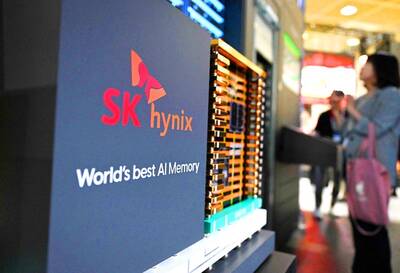For decades, it has been a deeply held belief among many of Wall Street’s giants that a multiplicity of business lines is superior to a more streamlined model.
However, Blackstone Group LP, the world’s largest private equity firm, has cast a vote against conventional wisdom, on Friday saying that it would spin off its divisions that provide advice on corporate transactions.
Blackstone acknowledged that the advisory division — its oldest line of business — was being hampered by potential conflicts of interest arising from being housed under the same roof as a giant investing arm.
To lead the newly independent firm, it attracted a prominent investment banker, Paul Taubman, who has been tackling large deals on his own since leaving Morgan Stanley two years ago.
For Blackstone, which was founded by Stephen Schwarzman and Peter Peterson in 1985 as an advisory boutique, the decision to break from the advisory business was challenging.
The business to be spun off includes a mergers and acquisitions practice, a restructuring services team and a group called Park Hill that helps private equity firms and hedge funds raise capital.
In a voice message to employees on Friday morning, Blackstone chief executive and chairman Schwarzman said that he pursued the move “not without mixed emotions.”
However, the firm, which today manages almost US$300 billion in assets across private equity, real estate and other investment strategies, ultimately recognized that the advisory business was being stymied by the investing operations.
When Lehman Brothers Holdings Inc went bankrupt, for example, Blackstone’s restructuring group was prevented from pursuing that opportunity because its real-estate investing arm wanted the option of buying assets from the Lehman estate, said Joan Solotar, Blackstone’s head of external relations and strategy.
In addition, rival private equity firms would not hire Blackstone’s bankers for competitive reasons, she said.
“The number of transactions that the advisory folks were told to stand down on has grown exponentially,” Solotar said.
“That was becoming increasingly just a constraint on the business,” she said.
The restructuring group is ranked first worldwide this year in terms of announced business, with US$32.4 billion of deals through Friday, according to Thomson Reuters data.
The merger advisory group has a much lower ranking, in 89th place globally.
However, combined, the advisory businesses generated about US$380 million of revenue in the 12 months through June 30, comparable to some of Wall Street’s independent investment banks.
Blackstone plans to acquire PJT Partners, the fledgling firm created by Taubman that includes about a dozen partners, and merge it with the advisory business while spinning off the combined entity.
When the deal is completed next year, its shareholders are scheduled to initially own 65 percent of the new company, while the advisory employees, along with Taubman and his partners, plan to own the balance, Blackstone said.

Intel Corp chief executive officer Lip-Bu Tan (陳立武) is expected to meet with Taiwanese suppliers next month in conjunction with the opening of the Computex Taipei trade show, supply chain sources said on Monday. The visit, the first for Tan to Taiwan since assuming his new post last month, would be aimed at enhancing Intel’s ties with suppliers in Taiwan as he attempts to help turn around the struggling US chipmaker, the sources said. Tan is to hold a banquet to celebrate Intel’s 40-year presence in Taiwan before Computex opens on May 20 and invite dozens of Taiwanese suppliers to exchange views

Application-specific integrated circuit designer Faraday Technology Corp (智原) yesterday said that although revenue this quarter would decline 30 percent from last quarter, it retained its full-year forecast of revenue growth of 100 percent. The company attributed the quarterly drop to a slowdown in customers’ production of chips using Faraday’s advanced packaging technology. The company is still confident about its revenue growth this year, given its strong “design-win” — or the projects it won to help customers design their chips, Faraday president Steve Wang (王國雍) told an online earnings conference. “The design-win this year is better than we expected. We believe we will win

Power supply and electronic components maker Delta Electronics Inc (台達電) yesterday said it plans to ship its new 1 megawatt charging systems for electric trucks and buses in the first half of next year at the earliest. The new charging piles, which deliver up to 1 megawatt of charging power, are designed for heavy-duty electric vehicles, and support a maximum current of 1,500 amperes and output of 1,250 volts, Delta said in a news release. “If everything goes smoothly, we could begin shipping those new charging systems as early as in the first half of next year,” a company official said. The new

SK Hynix Inc warned of increased volatility in the second half of this year despite resilient demand for artificial intelligence (AI) memory chips from big tech providers, reflecting the uncertainty surrounding US tariffs. The company reported a better-than-projected 158 percent jump in March-quarter operating income, propelled in part by stockpiling ahead of US President Donald Trump’s tariffs. SK Hynix stuck with a forecast for a doubling in demand for the high-bandwidth memory (HBM) essential to Nvidia Corp’s AI accelerators, which in turn drive giant data centers built by the likes of Microsoft Corp and Amazon.com Inc. That SK Hynix is maintaining its